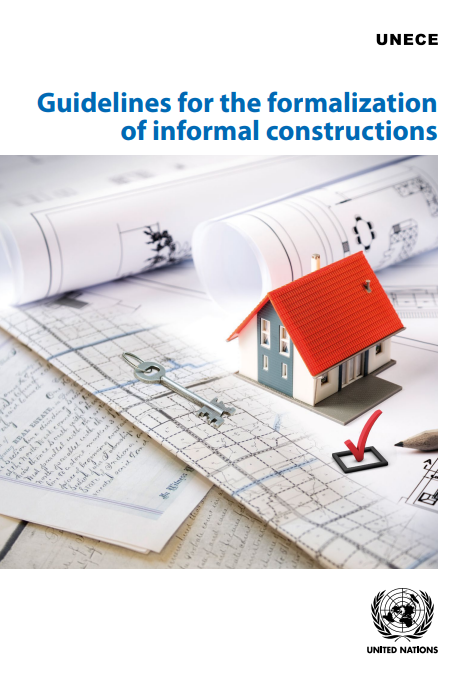Guidelines for the formalisation of informal constructions

01 December 2019
United Nations Economic Commission for Europe
English
Research report
Europe
This study examines informal settlements in the developed world, with a focus on the United Nations Economic Commission for Europe region, where over 50 million people reside in such settlements. These settlements, characterised by squatting on state and private land, create challenges for land tenure security, the environment, and society. The United Nations Economic Commission for Europe Committee on Urban Development, Housing, and Land Management has published reports with policy recommendations and best practises to address these challenges. However, political issues hinder the coordination of land-related agencies and projects in many countries. Large-scale land reforms in the past three decades have also led to a lack of knowledge and experience in spatial and urban development planning. Therefore, improving education, local expertise, and public awareness are necessary for effective land management.
Efforts are needed to promote professional ethics and implement land management tools like cadastres and property registration. Stakeholders must coordinate to address informal development, integrating well-built informal buildings into the economy while reducing informal settlements. The study aims to provide guidelines and tools to address informal urban/suburban development and achieve sustainable solutions.
This publication is a brief, practical, and easy-to-read guide, explaining how to structure a programme for the formalisation of informal constructions. It shows how to do this in an affordable, reliable, inclusive, and timely manner so that governments can meet the SDGs by 2030 and implement the New Urban Agenda. The focus is on the formalisation process itself, but there are also descriptions of the preparatory work needed to analyse the problem magnitude, as well as how to find political acceptance, identify post-formalisation factors, and identify the root problems that cause future informality.
Abstract based directly on source.


Comments